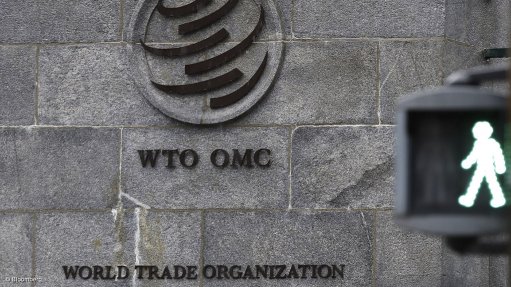South African Budget Speech 2018 – Additional Tax Proposals
This article has been supplied as a media statement and is not written by Creamer Media. It may be available only for a limited time on this website.
Conor McFadden, partner at Fasken in Johannesburg
The Minister of Finance, Malusi Gigaba, delivered South Africa’s 2018 Budget speech to Parliament on 21 February 2018. For the first time since 1993 the rate of Value-Added Tax (VAT) will be increased by one per cent in an attempt to fund the void in the national budget.
The new VAT rate is still less than the average rate for Africa and globally. The rate will take effect from 1 April 2018.
R36 billion in additional tax revenue will be raised by other tax proposals, including:
- Increases in the alcohol and tobacco excise duties of between 6 and 10%.
- Ad-valorem excise duty rate on luxury goods increased from 7% to 9%.
- A 52 cents per litre increase in the levies on fuel, made up of a 22 cents per litre for the general fuel levy and a 30 cents per litre increase in the Road Accident Fund Levy.
- A higher estate duty tax rate of 25% for estates greater than R30-million.
- A higher donations tax rate of 25% for donations exceeding R30 million in one tax year.
In the 2018 Budget Review certain additional tax amendments have been proposed by the Minister. We have set out below a summary of certain of these proposals. It is important to bear in mind that the enacting legislation in respect of these proposals will only be sent outfor public comment later in the year.
Debt relief rules
Last year the Income Tax Act was amended to address the tax consequences of applying debt relief rules. Government has noted concerns about unintended consequences that may arise from the application of these tax amendments and has proposed that further amendments be made to address these concerns. It is not clear what specific concerns are to be addressed. However, a discussion document inviting comments will soon be published to facilitate public consultation.
Share buybacks and dividend stripping
In 2017, anti-avoidance rules dealing with share buybacks and dividend stripping were revised. One such rule specified that anti-avoidance rules would override corporate reorganisation rules to prevent taxpayers from stripping dividends out of a target company, and thereby devaluing the company, before a reorganisation transaction.
Government has recognised that these changes may affect some legitimate transactions and arrangements. Accordingly it has proposed that the interaction of these anti-avoidance rules and some of the corporate reorganisation rules be reviewed.
In addition, anti-avoidance rules dealing with share buybacks and dividend stripping regarding preference shares should be clarified. Debt-financed acquisitions of controlling interest in an operating company .After the proposed suspension of intra-group transactions in 2012, a special interest deduction was introduced instead of allowing implementation of debt push-down structures.
Companies can claim this deduction if they used debt funding to acquire a qualifying controlling interest in an operating company. In 2015, the legislation was amended to prevent the abuse of this deduction. To qualify for this deduction, an operating company is now defined as a company where at least 80 per cent of its receipts and accruals constitute income for tax purposes. However, it has been recognised that amendments to the current
provisions are needed to clarify when this test should be applied.
In addition, it has been proposed that the relevant legislation be reviewed to determine whether this test should be applied when an operating company transfers its business as a going concern to a companyt hat forms part of the same group of companies as that operating company.
Review of venture capital company rules Government’s venture capital companies tax incentive regime, introduced in 2008, has grown significantly over the past two years. The number of approved venture capital
companies is currently 90 with total investments of R2.5 billion. However, administrative and technical issues are obstructing increased uptake. It has been proposed that the legislation be amended to address rules relating to the investment income threshold limitations in the qualifying company test, as well as when the controlled company test needs to be applied.
The rules relating to the connected person test will also be reviewed, specifically the rule for retroactive withdrawal of venture capital company status.
Value-added tax
A VAT vendor can claim a deduction for VAT on taxable supplies that have to be written off. If the vendor cedes or sells the debt that has been written off on a non-recourse basis for an amount that is less than the amount owing, then the sale of the debt is exempt from VAT and the vendor is not required to make any adjustments to the previous VAT deduction.
Government has noted that some vendors (such as collection agents or banks) that buy thebook debt in terms of the above mentioned arrangement then attempt to claim a further VAT deduction if they write off all or part of this debt in future. This results in a double VAT deduction, which is against the intention of the legislation. To prevent this double VAT deduction, it is proposed that the term “face value of a debt transferred” will be defined in the
VAT Act.
An amendment has been proposed to provide legal certainty that the members of a joint venture may also be jointly and severally liable for the VAT debts of that venture. Updated draft regulations prescribing foreign electronic services and supporting amendments to the VAT legislation have been published for public comment.
Tax treatment of cryptocurrency transactions
Government’s view is that cryptocurrencies pose risks to the income tax system as they are extremely volatile and their sustainability is uncertain. At the same time, the supply of cryptocurrency can cause administrative difficulties in the VAT system. To address these issues, it is proposed that the income tax and VAT legislation be amended.
Notification of commencement of an audit
In a welcome move, it is proposed that a taxpayer be notified at the start of an audit in orderto keep all parties informed.
Carbon Tax
Parliament is currently considering the draft Carbon Tax Bill and the Minster stated that the Act is to come into force from 1 January 2019 in order meet its nationally determined contributions under the 2015 Paris Agreement of the United Nations Framework Conventionon Climate Change. Parliament has convened hearings following the release of the draft bill in December 2017.
Exchange Control Proposals
Reforming loop structures
Loop structures take place when South Africans invest in South Africa via an entity in an other country. Such structures may be set up for genuine reasons, for example, when the entity has investors from around the world. But sometimes these structures are set up to avoid tax. It is proposed that the loop structure provision is increased from 20 per cent to a maximum of 40 per cent for bona fide business investment, growth and expansion transactions.
The current minimum requirement of 10 per cent is abolished. This applies to companies, including private equity funds, provided that the entity is a tax resident in South Africa. Loop structures above the prescribed threshold will require Reserve Bank approval with due consideration to transparency, tax, equivalent audit standards and governance.
Inward Listings
In 2018, the National Treasury will release a comprehensive inward listings review paper, which will address various matters, including the standards of reporting and information provision, company track records, arms-length arrangements, valuation of the acquiring company, management arrangements, funding arrangements, deployment of listing proceeds, due diligence, audit history, stakeholder protection, better treatment of holders of
securities, and confidence among market participants.
Review of significant and strategic transactions
To support cross-border investment and increase transparency, the National Treasury will release a paper later this year on a proposed policy framework for the review and approval of complex cross-border transactions.
Comments
Announcements
What's On
Subscribe to improve your user experience...
Option 1 (equivalent of R125 a month):
Receive a weekly copy of Creamer Media's Engineering News & Mining Weekly magazine
(print copy for those in South Africa and e-magazine for those outside of South Africa)
Receive daily email newsletters
Access to full search results
Access archive of magazine back copies
Access to Projects in Progress
Access to ONE Research Report of your choice in PDF format
Option 2 (equivalent of R375 a month):
All benefits from Option 1
PLUS
Access to Creamer Media's Research Channel Africa for ALL Research Reports, in PDF format, on various industrial and mining sectors
including Electricity; Water; Energy Transition; Hydrogen; Roads, Rail and Ports; Coal; Gold; Platinum; Battery Metals; etc.
Already a subscriber?
Forgotten your password?
Receive weekly copy of Creamer Media's Engineering News & Mining Weekly magazine (print copy for those in South Africa and e-magazine for those outside of South Africa)
➕
Recieve daily email newsletters
➕
Access to full search results
➕
Access archive of magazine back copies
➕
Access to Projects in Progress
➕
Access to ONE Research Report of your choice in PDF format
RESEARCH CHANNEL AFRICA
R4500 (equivalent of R375 a month)
SUBSCRIBEAll benefits from Option 1
➕
Access to Creamer Media's Research Channel Africa for ALL Research Reports on various industrial and mining sectors, in PDF format, including on:
Electricity
➕
Water
➕
Energy Transition
➕
Hydrogen
➕
Roads, Rail and Ports
➕
Coal
➕
Gold
➕
Platinum
➕
Battery Metals
➕
etc.
Receive all benefits from Option 1 or Option 2 delivered to numerous people at your company
➕
Multiple User names and Passwords for simultaneous log-ins
➕
Intranet integration access to all in your organisation




















